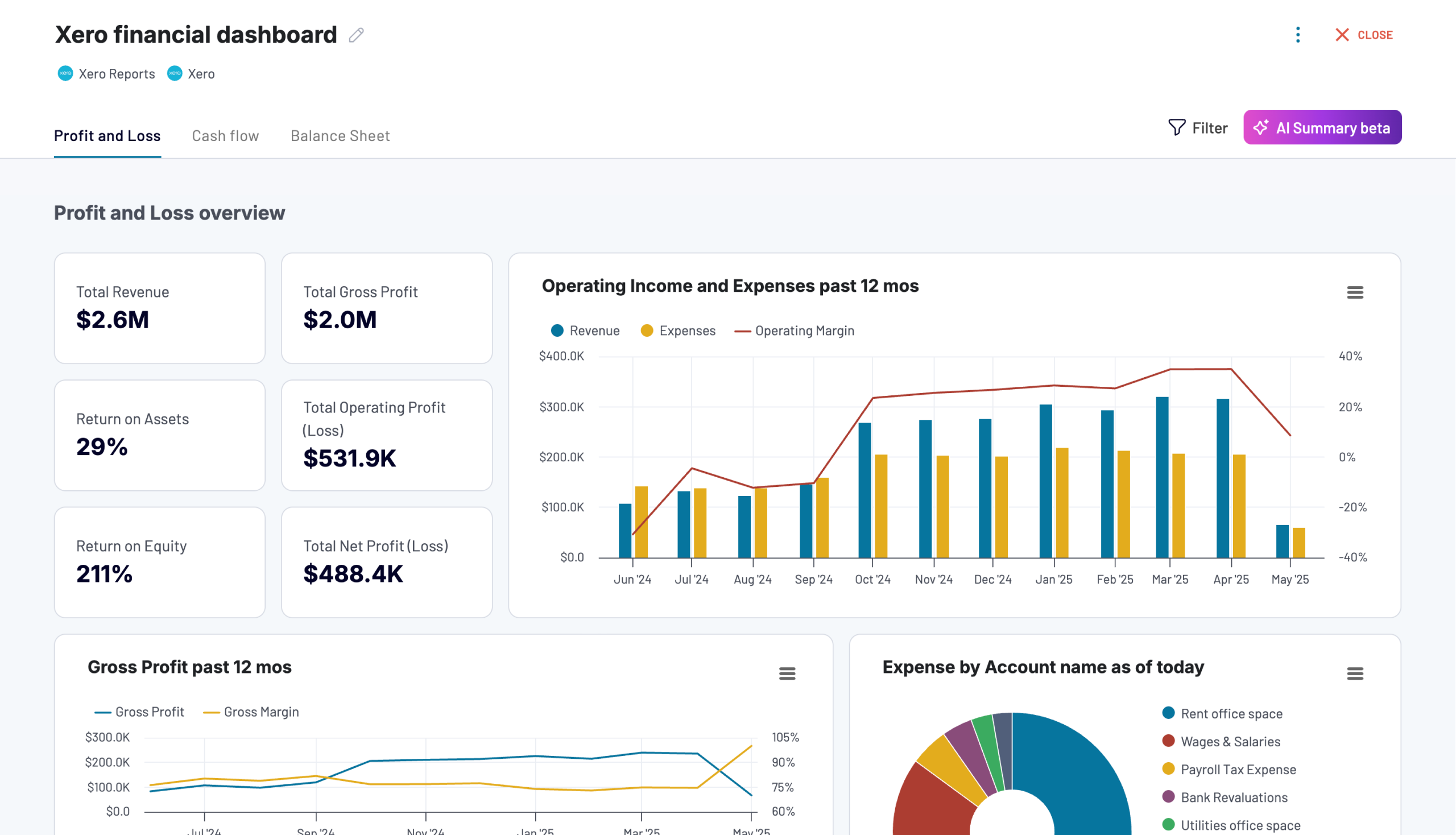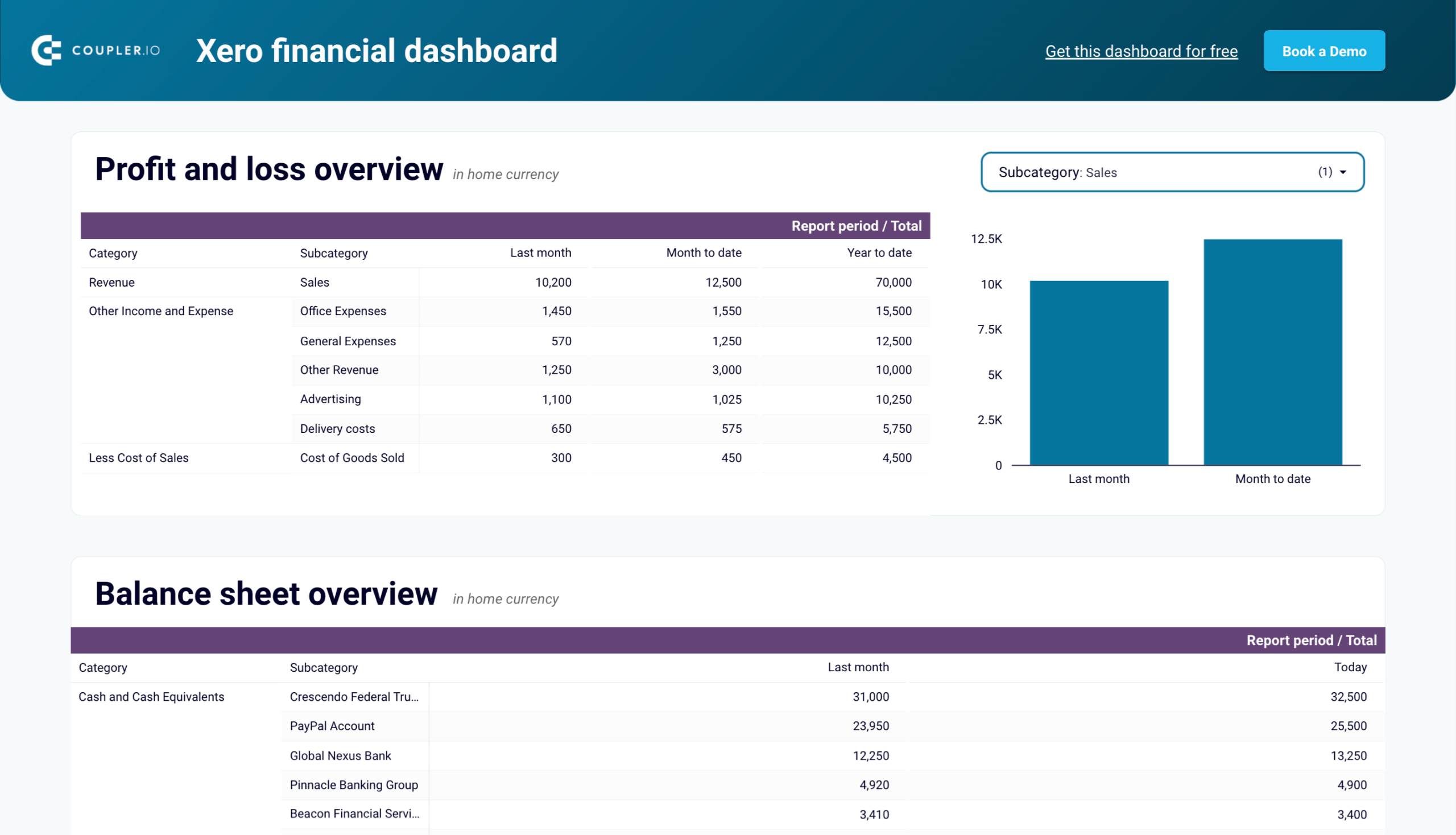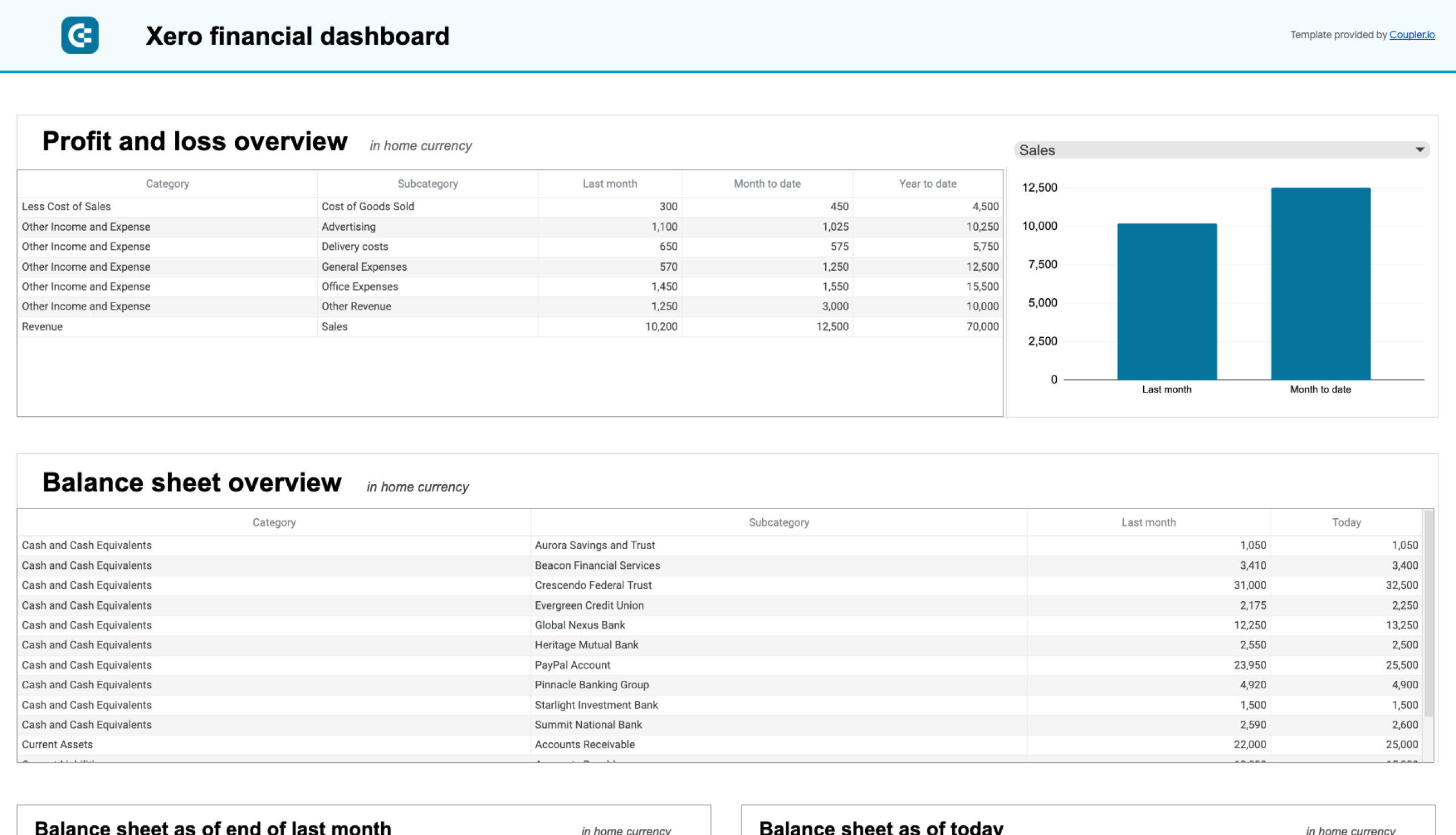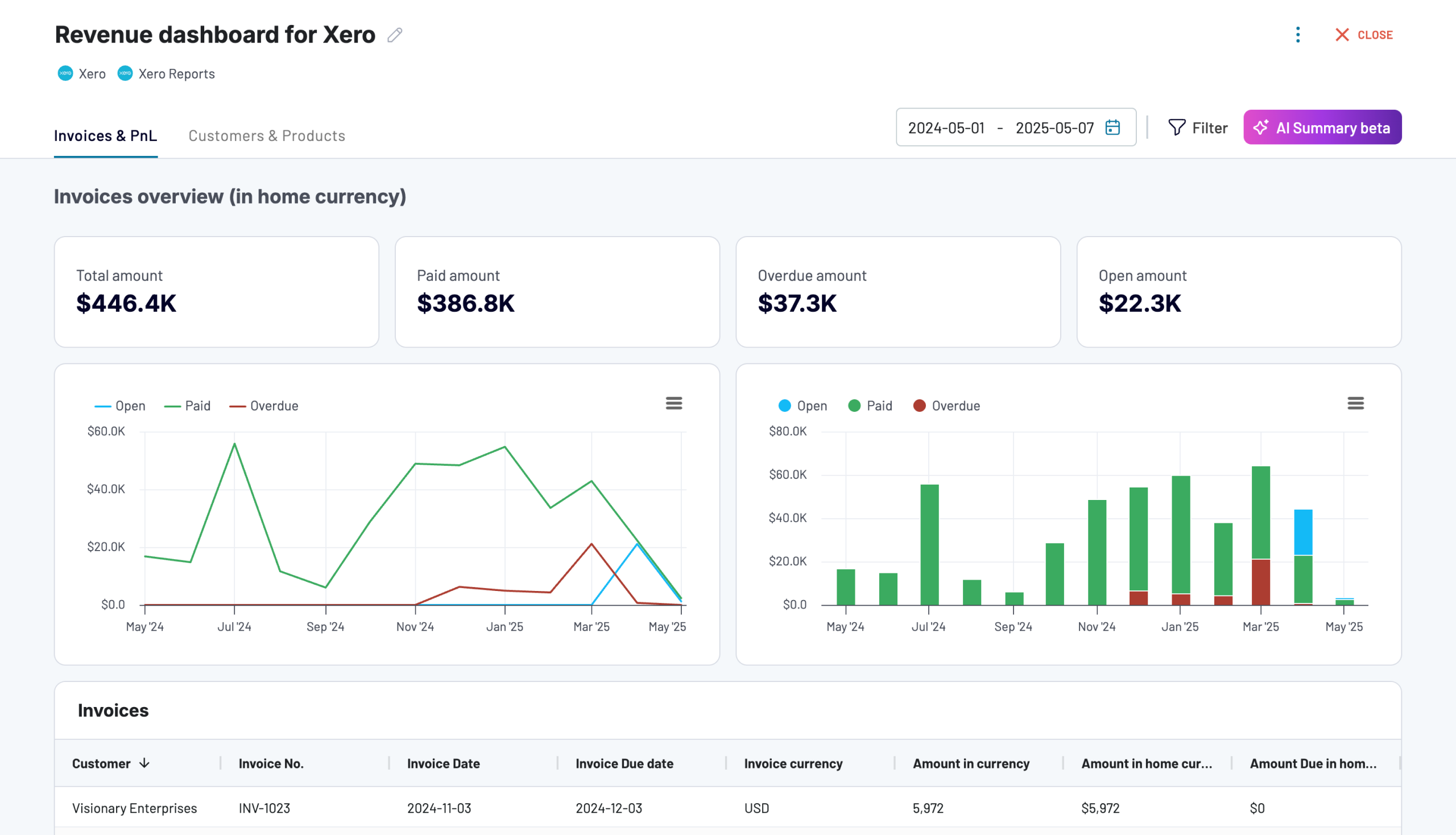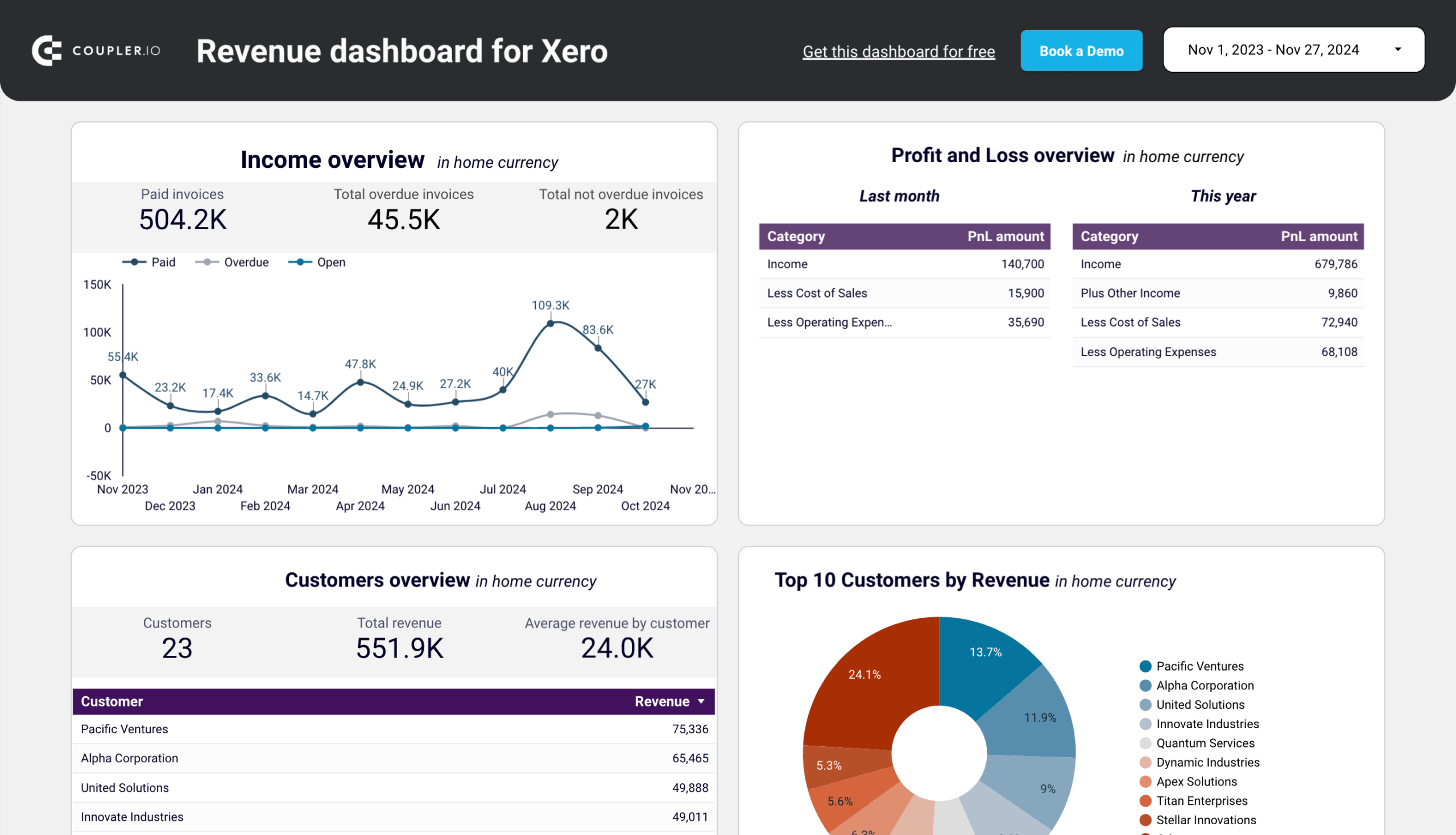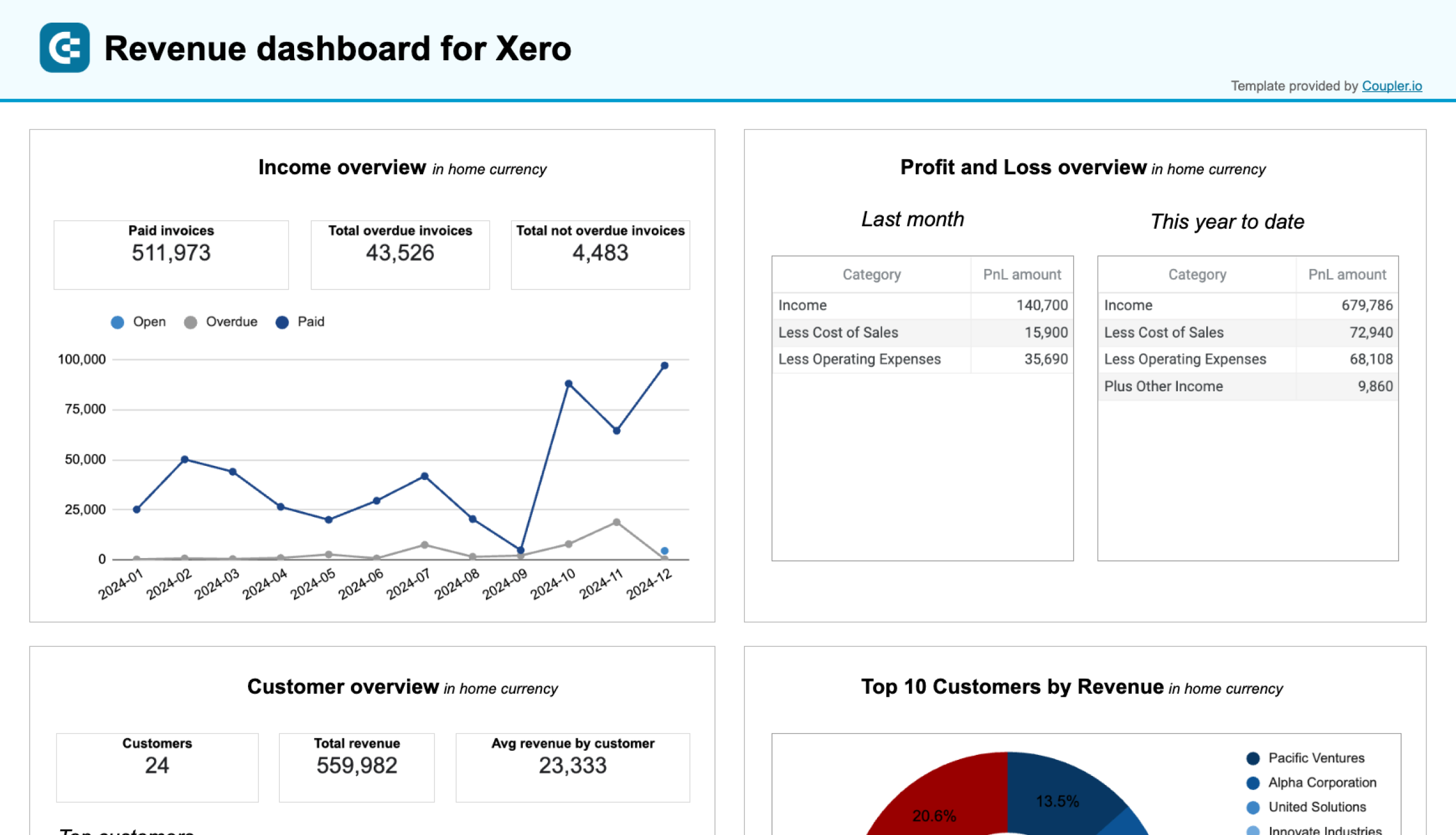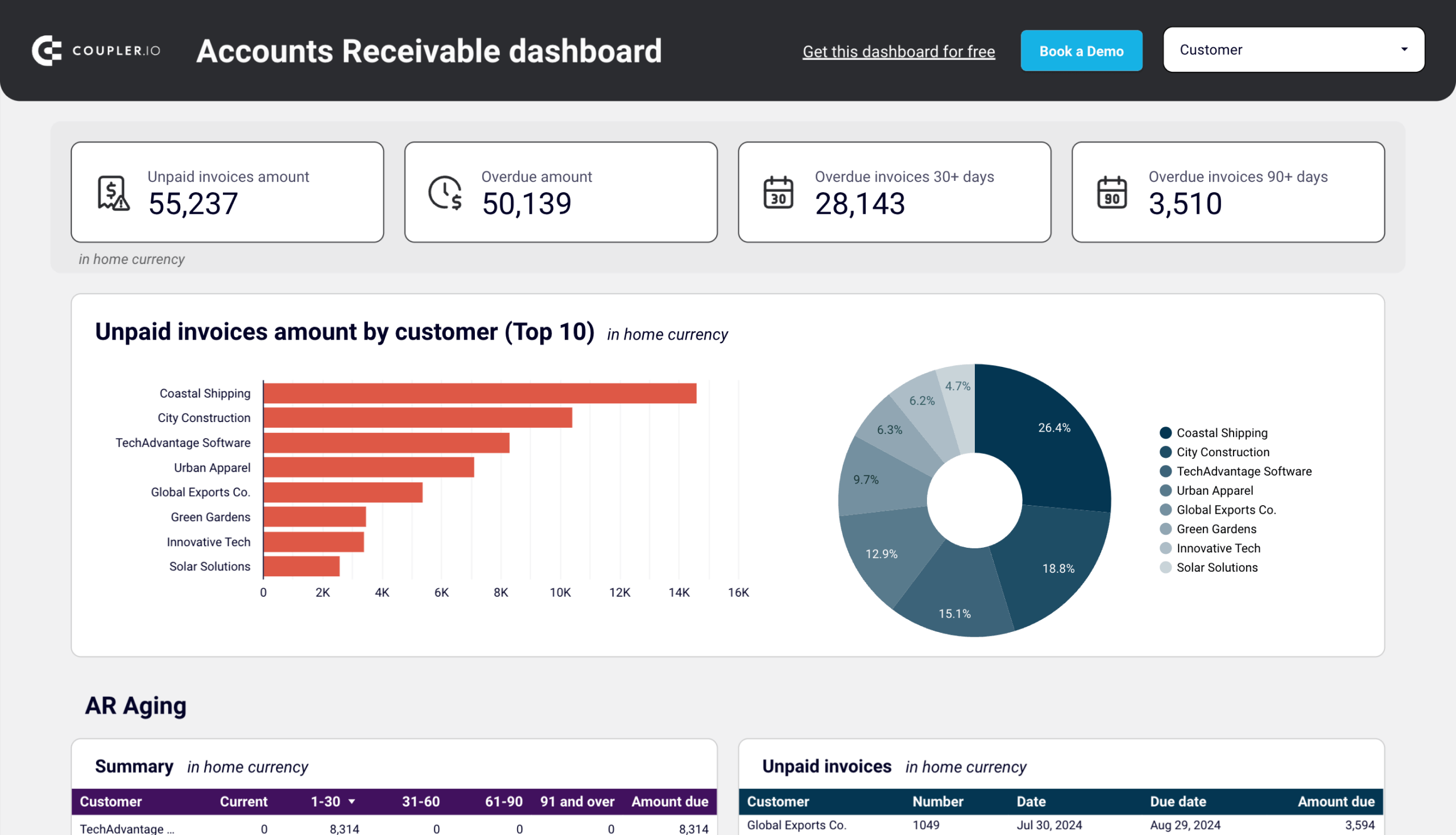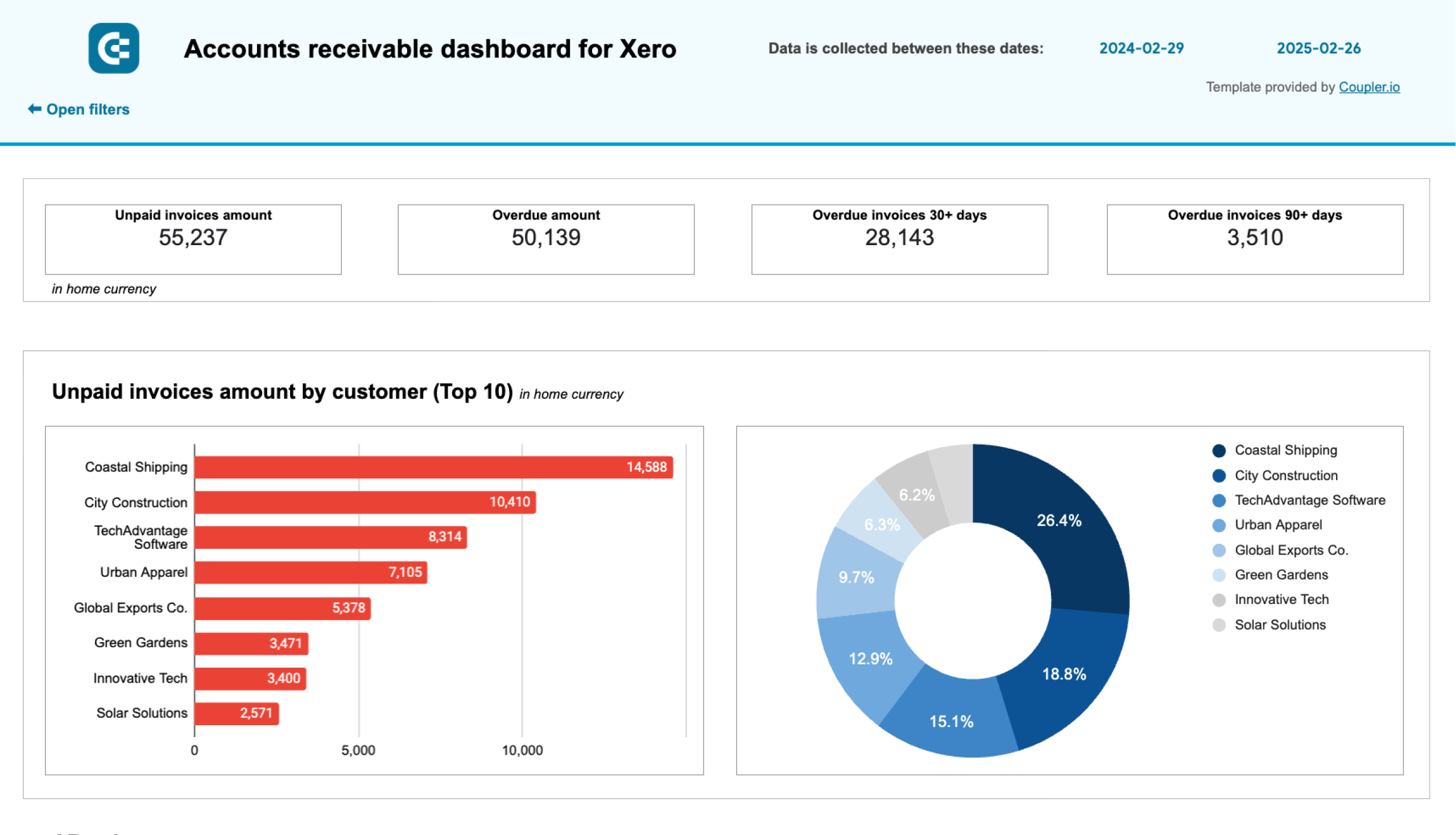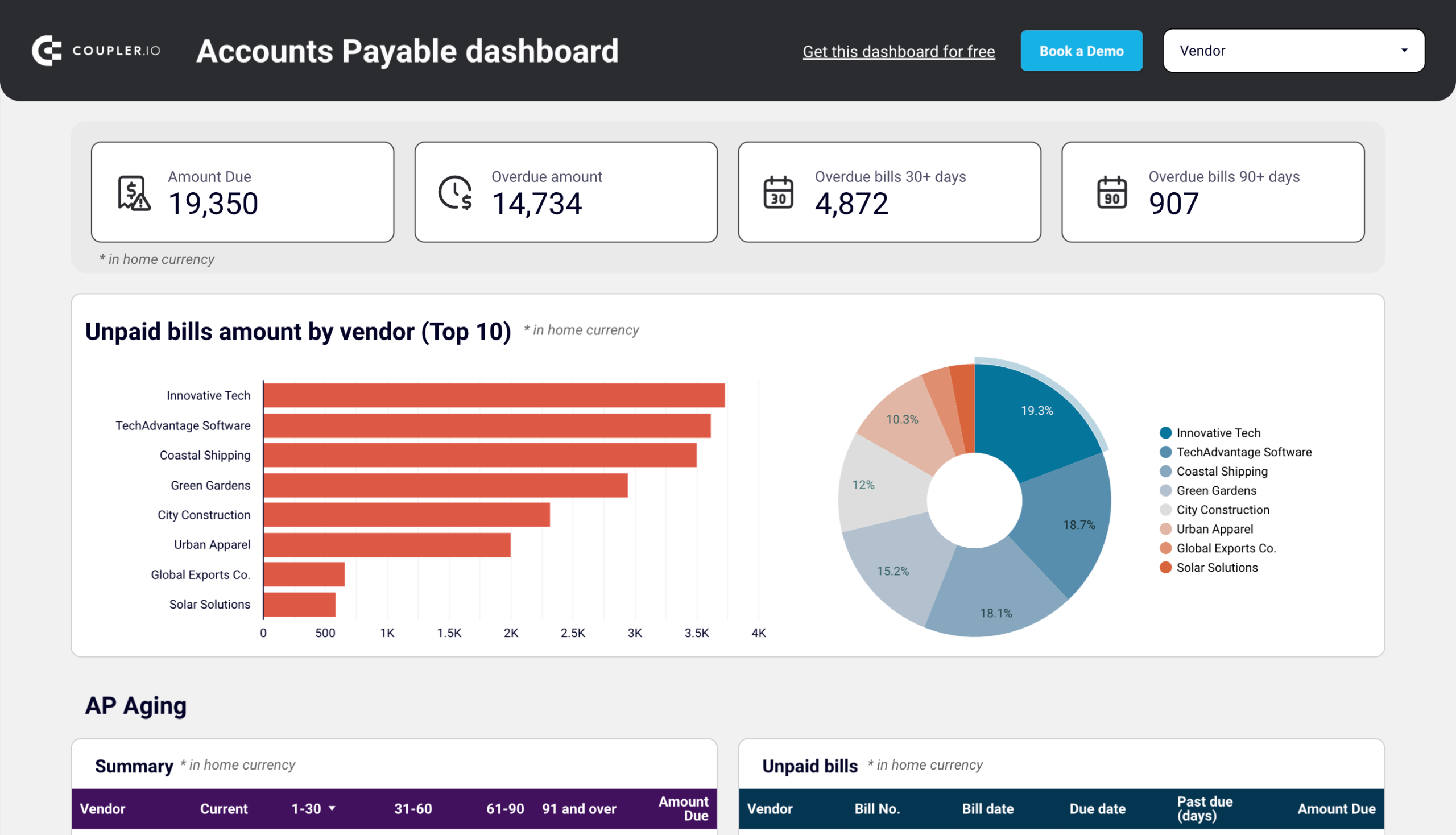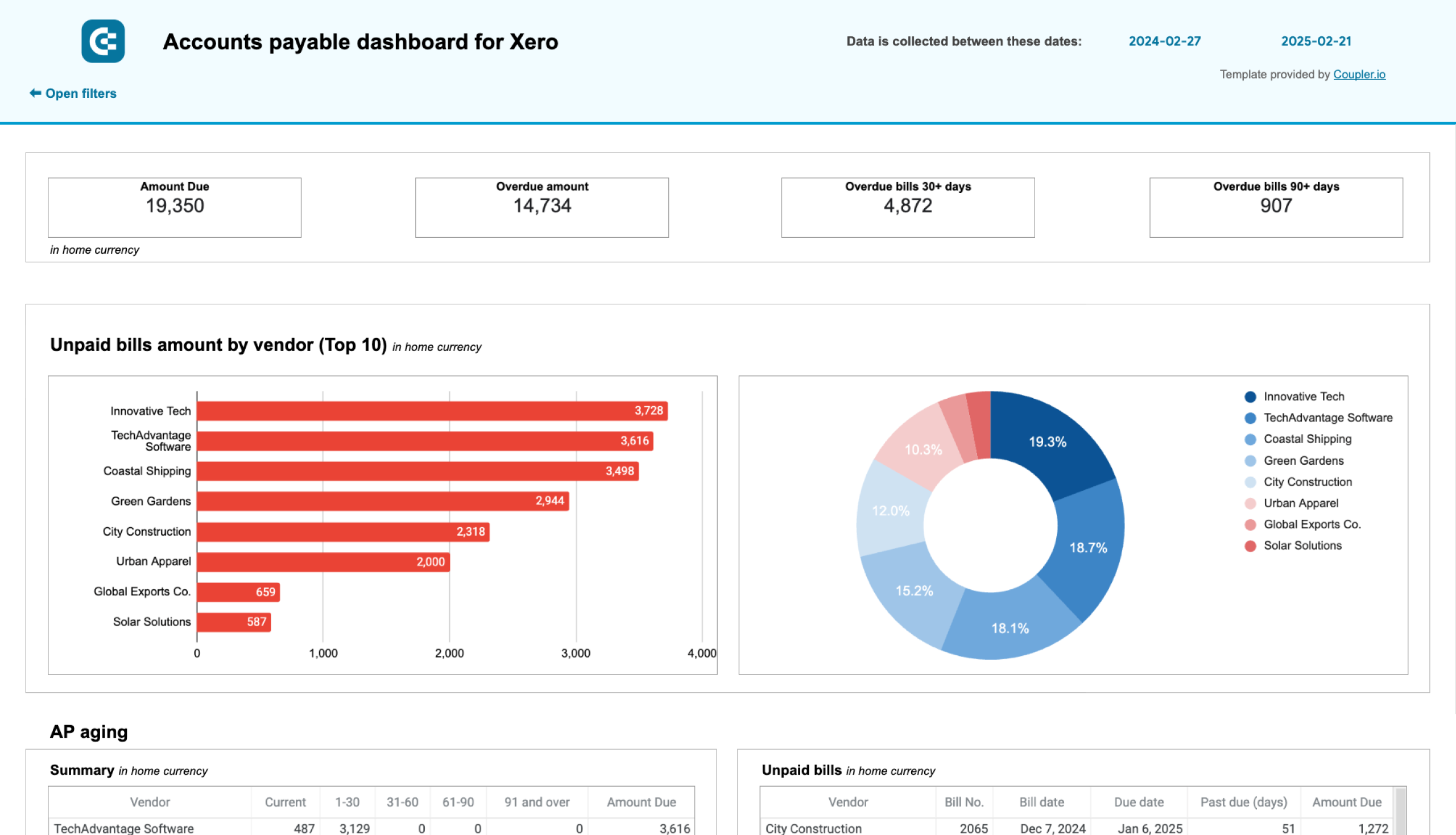Moving data from Xero to Google Sheets allows you to conduct better analysis, combine data from multiple sources, collaborate with team members, and automate financial reports. Let’s explore the unique methods you can use to connect both apps together.
Methods to connect Xero to Google Sheets
Coupler.io
This is a no-code reporting automation and analytics platform that enables users to easily create reports from their business data. With Coupler.io, you can extract records from over 60 data sources, including Xero, transform data, and load it into spreadsheets (Google Sheets and Microsoft Excel), BI tools (Looker Studio, Power BI, etc.), and data warehouses (BigQuery, PostgreSQL, etc.). The tool also provides an automatic data refresh feature that allows you to automate Xero data to Google Sheets on a schedule.
Custom script with Xero API
If you have strong technical skills, you can set up your own Xero to Google Sheets integration using coding. To do this, you’ll need to access the Xero API for your account and create the script in Google Apps Script or using another programming language. This approach also allows you to customize imports and set up a finance function automation workflow to send data without further effort.
Manual export
Xero has a native export function that lets you download your accounting data. All you need to do is navigate to the specific type of data you need and export the data as a CSV file. Then, you’ll return to Google Sheets, create a spreadsheet, and import the file. At the same time, users can export Xero Reports directly to Google Sheets without the need to download CSV files.
How do you connect Xero to Google Sheets with Coupler.io?
There are two types of Xero source apps to choose from – Xero and Xero Reports.
To connect Xero to Google Sheets, click Proceed in the preconfigured form below. You’ll be asked to create a new Coupler.io account for free (no credit card is required).
Step 1. Collect data from Xero
Add your Xero account, choose the Xero tenant, and the data entity you want to export.
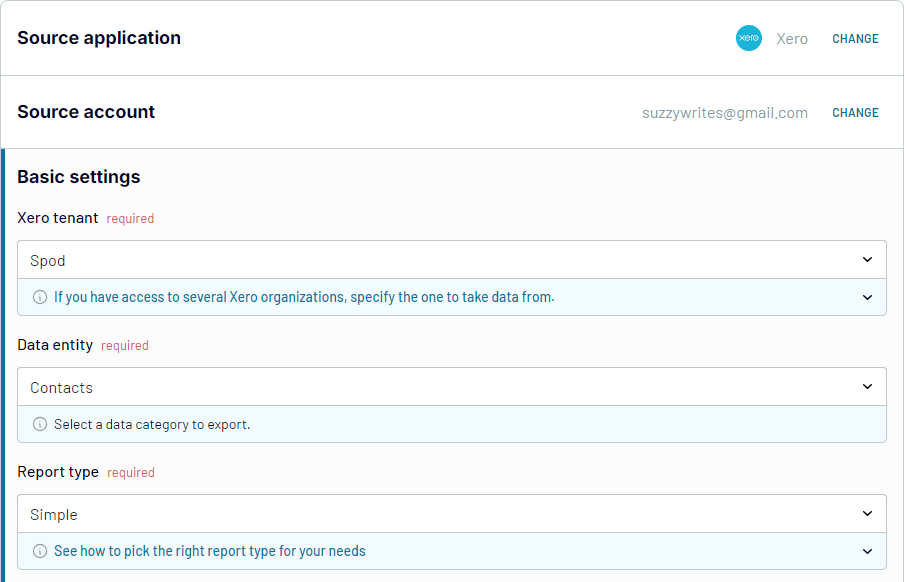
Step 2. Preview and transform data
The next step is to verify your data and make any changes if you want. You can:
- Hide and edit columns
- Filter and sort your data
- Add new columns using formulas
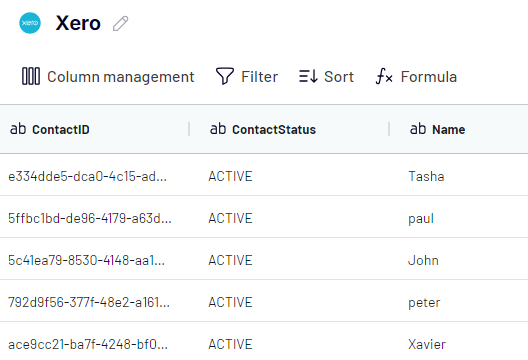
Coupler.io also allows you to merge data from different Xero accounts or even combine it with information from other sources.
Step 3. Load and schedule data refresh
Follow the in-app instructions to link your Google Sheets account and authorize access. Next, you’ll have to select a spreadsheet and a worksheet to import your data into.
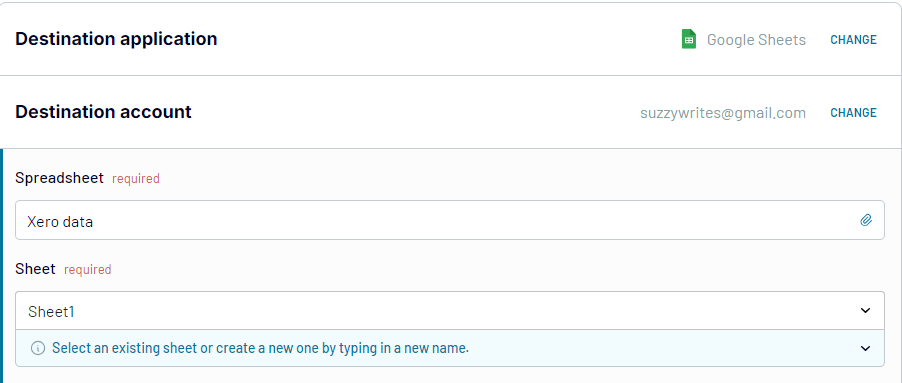
Once you click Set Up a Schedule, you’ll be able to turn on Automatic data refresh and schedule imports to your destination. You can pick an interval, days of the week, and timezone for the updates. It can be every 15 or 30 minutes, hourly, daily, or monthly.
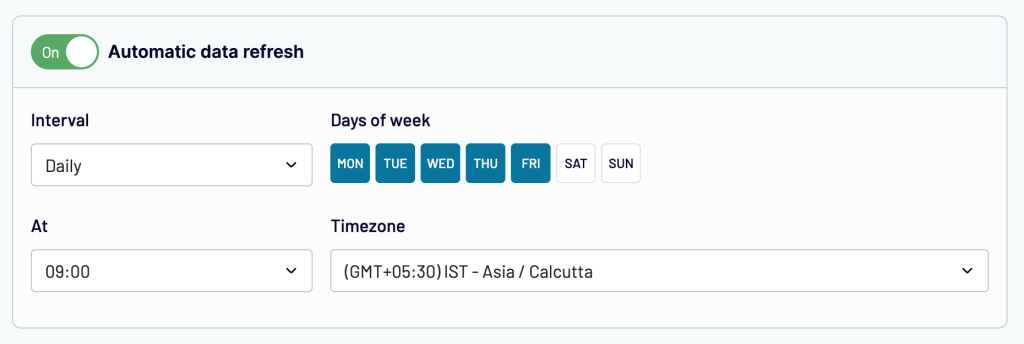
When you’re ready, click Save and Run to send your Xero accounting data to Google Sheets. If the import was successful, you’ll be able to find the data in the spreadsheet.
What can you export from the Xero source app?
The data categories you can get from Xero using Coupler.io include:
| Data entity | Description |
|---|---|
| Accounts | Related transactions e.g. invoices and payments |
| Bank Transactions | Bank transactions such as credits, debits, and transfers |
| Bank transfers | All transfers from your bank(s) |
| Branding themes | The customized appearance of your documents or emails |
| Contact groups | The grouped contacts of customers and suppliers |
| Contacts | Customers, suppliers, and other business contacts along with their details |
| Credit Notes | Documents issued to customers to reduce the amounts they owe |
| Currencies | The currencies you use for transactions |
| Employees | All employee information |
| Expense Claims | Expenses made by employees and details for each claim |
| Invoices | Xero invoices issued to customers |
| Items | List of products and services |
| Journals | Summary of all accounting entries |
| Linked Transactions | Related transactions e.g. invoice and payments |
| Manual Journals | Journal entries that were created manually |
| Organisation | Details about your company |
| Payments | Payments made or received |
| Prepayments | Payments made in advance |
| Purchase orders | Orders placed for goods and services |
| Receipts | Money received from customers |
| Repeating invoices | Invoices that are sent to the customer regularly based on a schedule |
| Tax rates | Different tax rates applied to transactions |
| Tracking categories | The categories used to track financial performance |
| Users | All users who have access to your Xero account and their roles or permissions |
Can you automatically export Xero Reports to Google Sheets using Coupler.io?
Xero Reports are pre-existing report templates that contain aggregated Xero data. They help to provide valuable insights into your accounting directly within the platform.
To export reports from Xero to Google Sheets with Coupler.io, you need to select Xero Reports as a data source. We’ve preselected it in the form below, so you only need to click Proceed:
Then configure the connection similarly to the setup described above. The only difference is that you need to choose the report type from the following:
| Report type | Description |
|---|---|
| Aged Payables by Contact | Unpaid bills by supplier and how long they’ve been owed |
| Aged Receivables by Contact | Outstanding customer invoices and how long each invoice has been overdue |
| Balance Sheet | Your organization’s financial position, what you own, and what you owe at a particular point in time. Check out the free balance sheet dashboard templates by Coupler.io. |
| Bank Statement | Transactions from your bank accounts matched with transactions in Xero |
| Bank Summary | Bank balances and activities during a selected time period |
| Budget Summary | Budgets created in your Xero account |
| Executive Summary | An overview of income, expenses, balance, profit, cash flow, etc. |
| Profit and Loss | All income, expenses, and profit |
| Trial Balance | Account balances to compare the total debits with the total credits |
Manual Xero export to Google Sheets
Users can manually download Xero data and Xero reports separately. Use the tutorials below:
How do you export Xero data?
- Navigate to the preferred category on your dashboard e.g. Invoices.
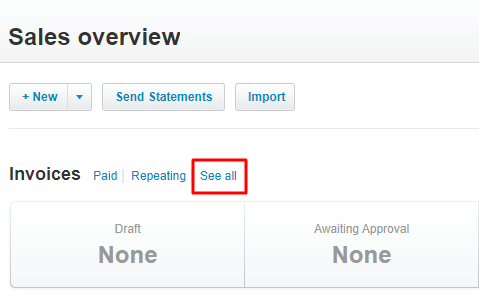
If you can’t see the export button, simply click See all to open the full page.
- Now, you’ll be able to find the export button.

Once you click it, your Xero data will download to your device as a CSV file.
How to load data to Google Sheets
- Create or open a spreadsheet. Go to File on the menu and select Import.
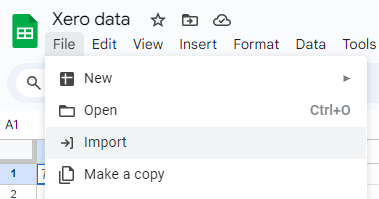
In the pop-up box, you’ll go to Upload and pick the CSV file from your computer.
How to export Xero Reports
- Navigate to Accounting > Reports.
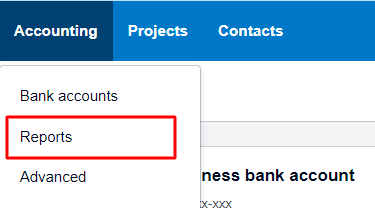
- Select the exact report you want to export, for example, Profit and Loss.

Explore P&L dashboard examples and free templates by Coupler.io.
- Choose the date range and adjust columns using the More button.

Once you’re done, click Update to save.
- At the bottom right, you’ll find the Export button.
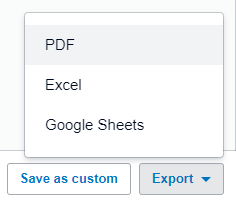
The export options available are PDF, Excel, and Google Sheets. If you pick either of the file options, your data will be downloaded to your device. For Google Sheets, you’ll sign in with your Google account and allow access.
After authorization, you can see your Xero report in Google Sheets.
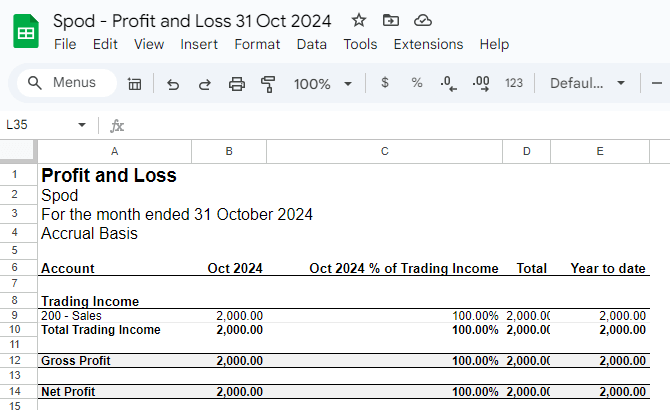
What do you need to make a custom integration with Xero API?
If you have solid technical skills, you can connect Xero to Google Sheets using the API. Here are things to put in place:
Prepare your API
- To access Xero API, go to developer.xero.com, and log in with your Xero details. You’ll see the page above. Click New app to get started.
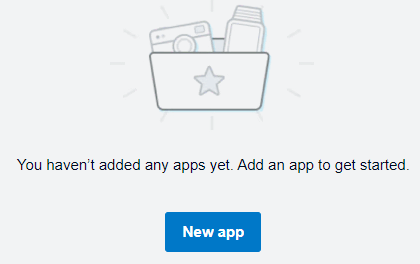
- Go to Explorer on the menu and click Connect your Xero organisation.
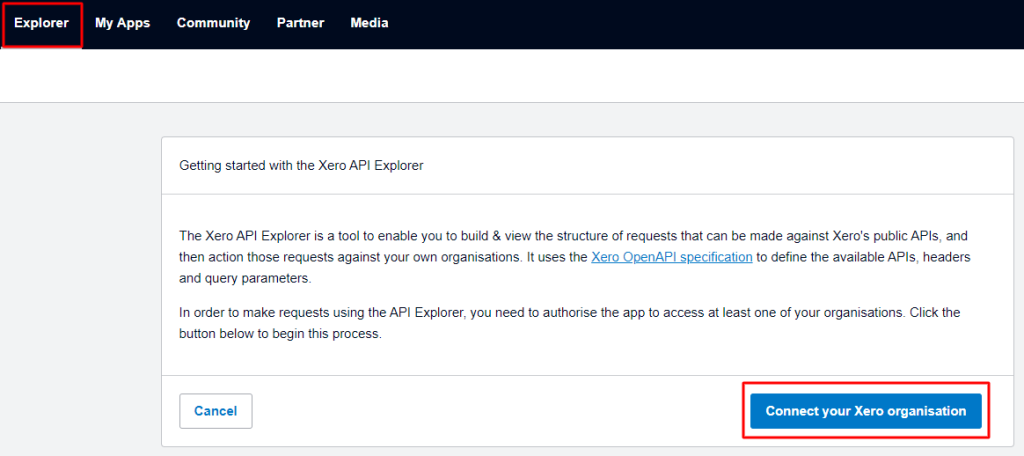
On the next page, you’ll be asked to Allow Access.
- Select the API, Endpoint, and Operation to generate your link.
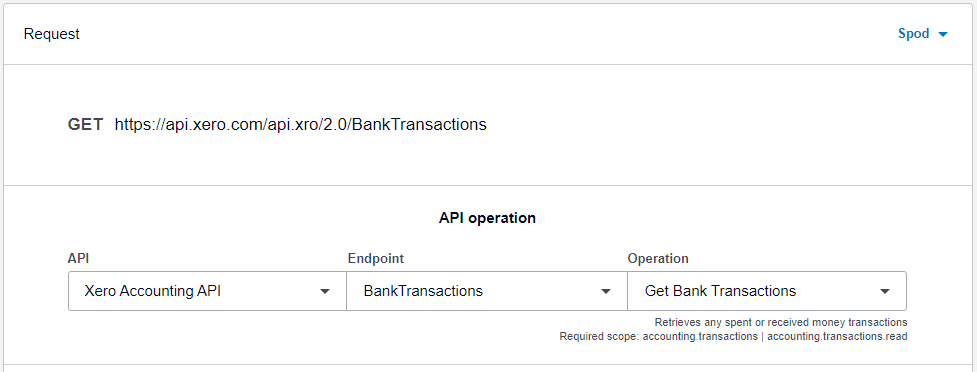
The Xero Accounting API has endpoints for all the Xero data, and there’s also one for Reports. If you pick a data entity, you’ll choose the operation to perform, e.g. Get Bank Transactions. If you select Reports, you can pick the report type under Operation, e.g. Get Report Balance Sheet. Once your endpoint URL is generated, you can copy it.
Get the access and refresh tokens for authorization
- Go to My Apps > Configuration to see your connection info.
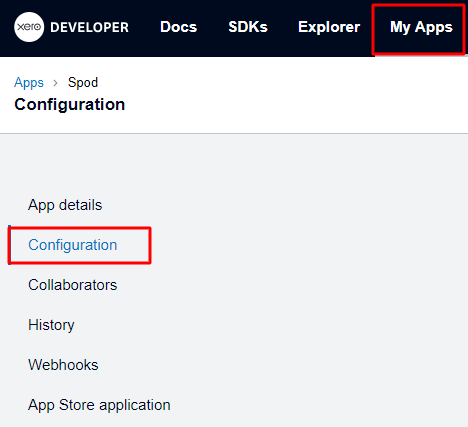
This shows the Redirect URL, Client id, and Client secret 1.
- Next, you’ll go to the Xero Authorization server using a URL such as:
https://login.xero.com/identity/connect/authorize?response_type=code&client_id=YOURCLIENTID&redirect_uri=YOURREDIRECTURI&scope=openid profile email accounting.transactions&state=123
Make sure to replace the values for client id, redirect uri, scope, and state (optional). After this is done, Xero will redirect back and add a temporary code to the redirect uri.
- Then, you’ll make a POST request to Xero’s token endpoint:
POST https://identity.xero.com/connect/token
The header:
authorization: "Basic " + base64encode(client_id + ":" + client_secret) Content-Type: application/x-www-form-urlencoded
Request body:
grant_type=authorization_code &code=xxxxxx &redirect_uri=https://myapp.com/redirect
Replace the values for client id, client secret, and code.
You’ll get a response containing your access token, expiry time, and refresh token. The access token needs to be in the authorization header when making your API call. An access token expires after 30 minutes, but you can use a refresh token to get a new one. For a more detailed explanation, check out the Xero Authorization Code Flow.
Google Apps Script
This scripting platform mainly supports JavaScript code. There are two ways to do this:
- Handle auth and fetch data
In Apps Script, you can write an authentication script to get the access token. You’ll have to provide the necessary info such as the client id, client secret, and redirect uri. Then, you’ll use another script with the access token and your API endpoint to fetch your data.
- Fetch data only
You can also use an API platform like Postman to obtain the access token. You’ll create a request, go to the Authorization tab, select OAuth2.0, and add the details needed to authenticate your Xero app. Once you get the access token, you can proceed to Google Apps Script and use a script to start importing from Xero to Google Sheets.
Make sure you’re prepared to handle errors that may occur during the entire process.
Automate Xero financial reporting with dashboard templates by Coupler.io
In addition to automating data flows and reports from Xero to Google Sheets, Coupler.io provides ready-to-use dashboard templates for instant reporting. They are equipped with the Xero connectors to automate data refresh from your Xero account.
Financial dashboard for Xero
The financial dashboard delivers insights into your company’s financial performance. You can track earnings, cash flow, and balance sheet changes in one place.
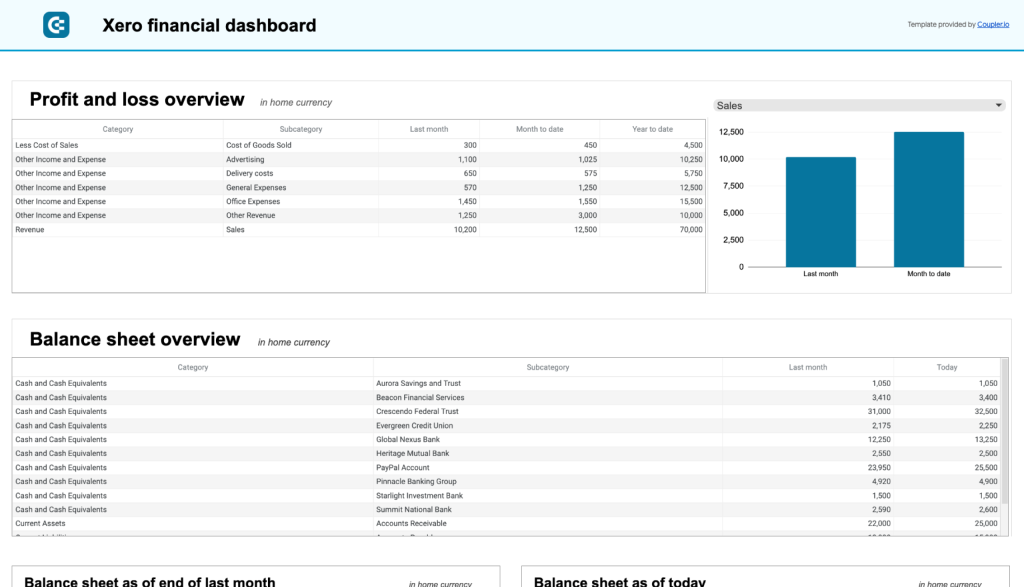
You get three overview reports on this Google Sheets dashboard: Profit and loss, Balance sheet, and Cashflow. This is an ideal solution for users who need an at-a-glance understanding of their company’s financial health without diving into detailed spreadsheets or reports. The dashboard is also available natively in Coupler.io (with AI insights) and as a template in Looker Studio. Try the version you like the most.
Revenue dashboard for Xero
The revenue dashboard for Xero gives you clear visibility into your company’s income sources. It combines data from Xero to show revenue distribution by customers and products, helping you identify your top performers and growth opportunities.
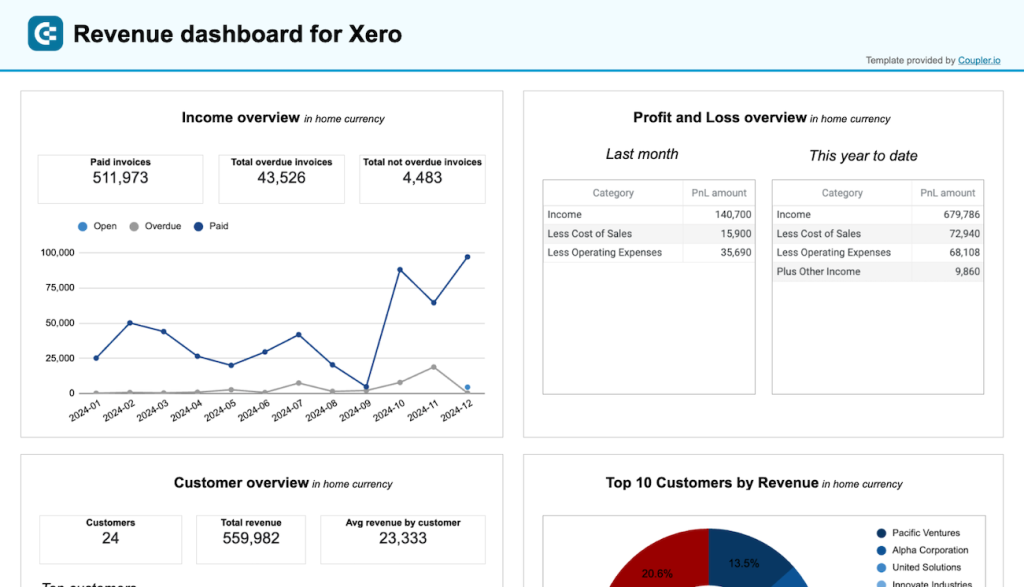
You get three overview reports on this Google Sheets dashboard: Income overview, Customer breakdown, and Product performance. This is an ideal solution for business owners who want to understand revenue patterns without diving into complex spreadsheets.
Follow the instructions in the Readme tab to make a copy of the template and connect it to your Xero account. Thanks to the built-in connector by Coupler.io, the dashboard will refresh automatically. You can also use the native version of this dashboard in Coupler.io and a template for Looker Studio.
Accounts receivable dashboard
This dashboard provides a comprehensive overview of accounts receivable turnover based on the data from Xero. You can check out all invoices distinguishing between paid, unpaid, and overdue, and derive other insights into outstanding client balances.
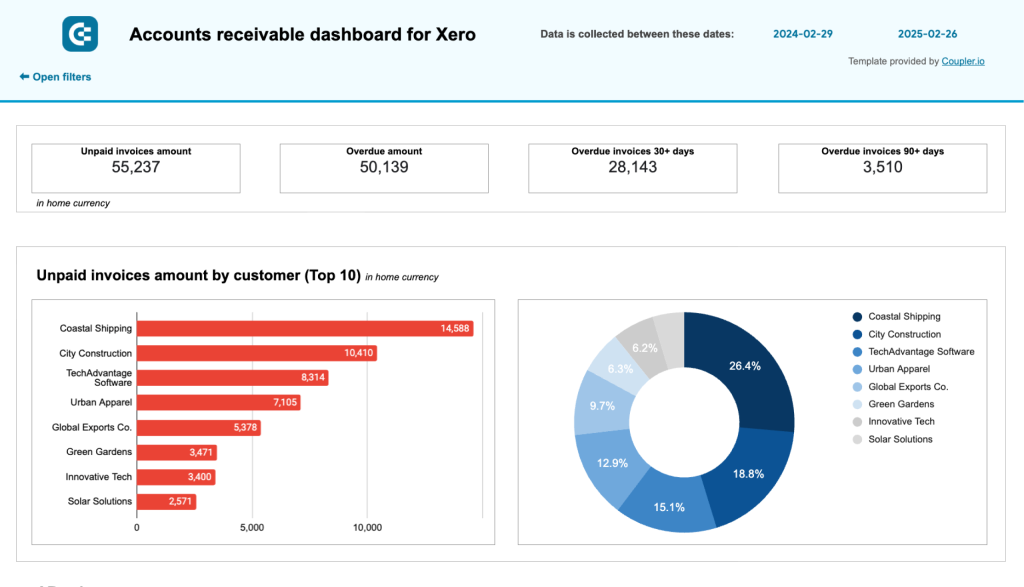
Follow the instructions in the Readme tab to make a copy of the template in Google Sheets and connect it to your Xero account. Thanks to the built-in connector by Coupler.io, the dashboard will refresh automatically. There is also a version of this template for Looker Studio.
Accounts payable dashboard
This dashboard allows you to track how much you need to pay to your vendors or suppliers. It gives details on the unpaid bills that are overdue, the cumulative overdue amounts, the bills you’ve paid so far, and each vendor that you need to settle.
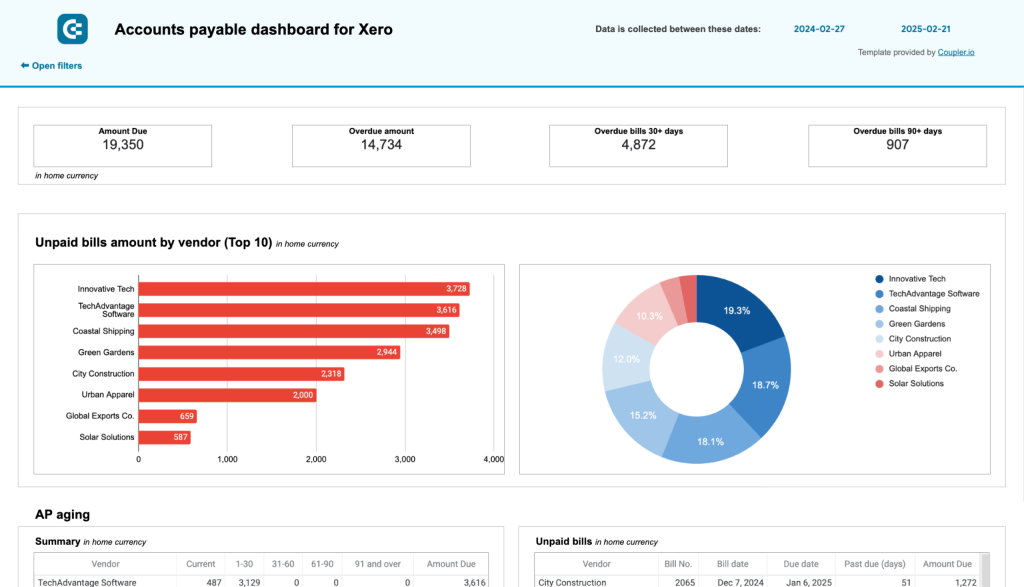
Similar to the AR dashboard template, follow the instructions to copy the template and connect your Xero account. The template is also available for Looker Studio. Coupler.io will load data from Xero to Looker Studio or Google Sheets, whichever option you prefer, and refresh it automatically according to the specified schedule.
These dashboard templates are self-updating, i.e. you’ll use Coupler.io’s connector to collect data and add a custom schedule to populate the report with near real-time data. This allows you to analyze more quickly, make forecasts, and frequently monitor financial health.
Check out the free cash flow dashboards by Coupler.io
Whether you’re a bookkeeper or a small business, you can use Coupler.io to automate data transfers to a destination or a report. It allows anyone to pull data from Xero and any other accounting software like QuickBooks. You can also combine data, transform it, and analyze it in your preferred spreadsheet or BI tool. Not to mention the support of data warehouses, so you can connect Xero to BigQuery. Moreover, the Google Sheets connector is available as a web app or an add-on. Choose the option you like the most to connect your business accounting data to Google Sheets.
Automate Xero reporting with Coupler.io
Get started for free
